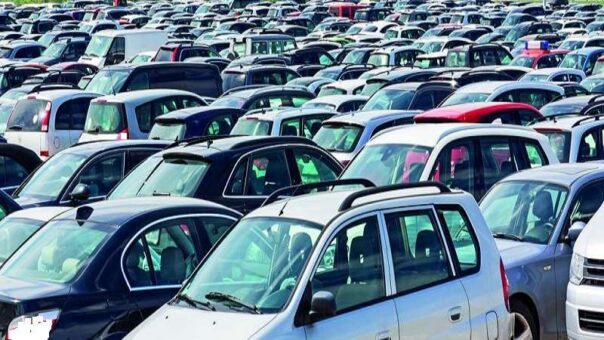KARACHI – The import of Completely Built Unit (CBU) motor cars has witnessed a significant decline of 36 percent, primarily attributed to the restrictions imposed on non-filers of income tax returns, according to data released by the Pakistan Bureau of Statistics.
The figures reveal a notable shift in the market dynamics, as the import of CBU motor cars dropped to $193.43 million during July – January 2018/2019, compared to $302.6 million recorded in the corresponding period of the previous fiscal year.
This downturn can be traced back to measures introduced through the Finance Act, 2018, where the government implemented restrictions on the registration of locally assembled new cars and the import of used/old motor vehicles by non-filers of income tax returns. A pivotal change was incorporated through the introduction of Section 227C, which explicitly stated that applications for booking, registration, or purchase of a new locally manufactured motor vehicle or the first registration of an imported vehicle would not be accepted or processed unless the individual is a tax filer.
The broader category of the total import of CBU motor vehicles, encompassing business vehicles, trucks, motorcycles, and motor cars, also experienced a decline of 37.42 percent. The figures indicate a drop to $284.34 million during the first seven months of the current fiscal year, down from $454.34 million in the corresponding period of the last fiscal year.
In contrast, the import of motor cars in Semi Knocked Down (SKD) or Completely Knocked Down (CKD) form witnessed a modest increase of 8.49 percent. The import value rose to $488.5 million during July – January 2018/2019, compared to $450.26 million in the corresponding period of the previous year.
The total import of motor vehicles in CKD/SKD configuration demonstrated a similar upward trend, experiencing an 8.49 percent increase. The figures for the first seven months of the current fiscal year indicate an import value of $777.8 million, compared to $720 million in the same period of the last fiscal year.
These fluctuations in the import dynamics underscore the direct impact of tax-related restrictions on the market, prompting a shift in consumer behavior and import preferences. The government’s efforts to incentivize tax filers and discourage non-filers from engaging in certain high-value transactions have influenced the import landscape in the automotive sector.
As the market continues to adapt to these regulatory changes, stakeholders are closely monitoring the trends to gauge the long-term implications on the automotive industry. The government’s initiatives to promote tax compliance and reshape economic dynamics will likely contribute to further transformations in the import and consumer landscape.
